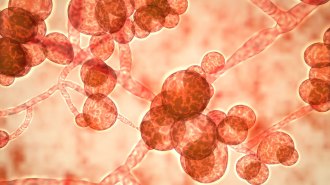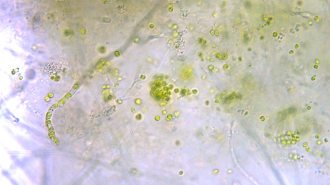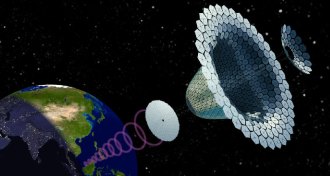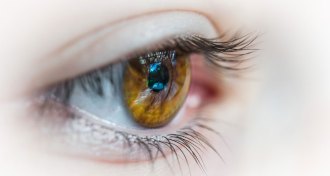Notebook
-
 Health & Medicine
Health & MedicineClimate change could raise the risk of deadly fungal infections in humans
The rise of Candida auris, a deadly fungus spurring outbreaks in the United States and worldwide, may have been aided by climate change.
-
 Health & Medicine
Health & Medicine50 years ago, a drug that crippled a generation found new life as a leprosy treatment
In 1969, a drug that crippled a generation found new life as a treatment for leprosy.
-
 Life
LifeThis is the first fungus known to host complex algae inside its cells
In the lab, an alga and a fungus teamed up to exchange food, similar to lichens. But instead of staying outside, the alga moved into the fungal cells.
-
 Tech
Tech50 years ago, lambs survived but didn’t thrive inside artificial wombs
Artificial wombs to support preemie babies are closer to reality.
-
 Ecosystems
EcosystemsPlanting trees could buy more time to fight climate change than thought
Earth has nearly a billion hectares suitable for new forests to start trapping carbon, a study finds.
By Susan Milius -
 Astronomy
AstronomyThe earliest known galaxy merger occurred shortly after the Big Bang
Telescopes show two distant blobs of stars and gas swirling around each other in the young universe.
-
 Health & Medicine
Health & MedicineThick calluses don’t make feet any less sensitive
Bare feet that develop thick calluses are just as sensitive as shoe-clad feet, a study in Kenya finds.
-
 Materials Science
Materials Science50 years ago, bulletproof armor was getting light enough to wear
In 1969, bulletproof armor used boron carbide fibers. Fifty years later, bulletproof armor is drastically lighter and made from myriad materials.
-
 Physics
PhysicsA computer model explains how to make perfectly smooth crepes
Here’s how to prepare thin pancakes that are perfectly smooth, according to science.
-
 Astronomy
Astronomy50 years ago, scientists wanted to build solar panels on the moon
In 1969, scientists proposed building solar panels on the moon to convert the sun’s energy into electricity that can be used on Earth.
By Kyle Plantz -
 Health & Medicine
Health & MedicineA cognitive neuroscientist warns that the U.S. justice system harms teen brains
The U.S. justice system holds adolescents to adult standards, and puts young people in situations that harm their development, a researcher argues.
-
 Health & Medicine
Health & Medicine50 years ago, scientists tried to transplant part of a human eye
In 1969, a doctor tried and failed to restore a 54-year-old man’s vision. Fifty years later, scientists are still struggling to make eye transplants work.